This site contains affiliate links. I may earn a small commission, at no extra cost to you.
This post shows you the best hormonal acne foods for glowing skin.
Building a diet for clear skin is an essential way to support your body’s natural functions, which over time results in lower inflammation and glowing skin.
We’ll explore ideas for a clearer skin diet that you can gradually build into your daily routine in order to reduce skin breakouts and brighten dull skin. For women over the age of around 23, we know that most acne is caused by hormones and genetics, making the cause hormonal acne. We can use hormonal acne foods as a handy tool to reduce the amount of breakouts we see.
How to reduce acne with diet
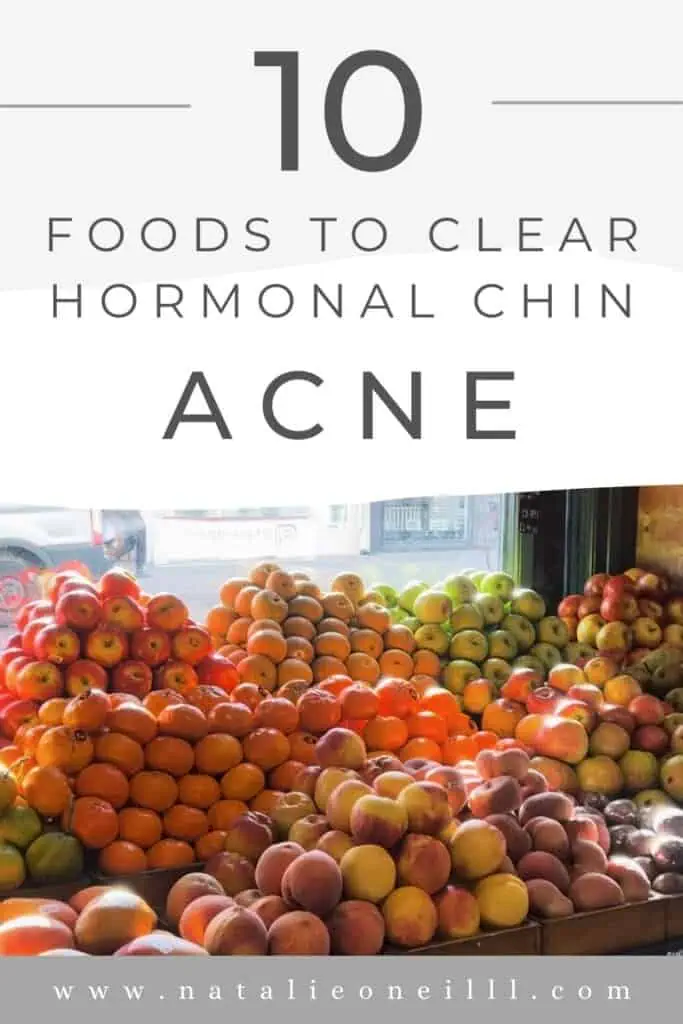
The link between reducing acne, skin redness and inflammation and your diet is debated amongst medics and dermatologists. Not all agree that diet directly impacts the skin, however over the past few years of struggling with problematic and sudden acne flareups, I personally have come to believe that it makes a really big difference.
Over time, I’ve deduced that it’s really all about keeping things simple and opting for whole, unprocessed foods.
So, this post will be about tips for choosing acne reducing foods. Before we get started, though, let’s talk about why diet can impact our skin.
Foods to balance hormones
Balancing your hormones with diet and lifestyle changes has become a really big trend lately on social media, and for good reason. I see a lot of misinformation on sites like TikTok, so let’s clear a few things up.
There is a link between a poor diet and acne breakouts, as well as many other undesirable symptoms such as bloating, fatigue, weight gain and more.
However, this doesn’t necessarily mean that you have a serious hormone disorder, such as PCOS, if you experience these symptoms. What we do know is that when you eat sugary foods, for example, it causes a reaction in your body. The chain reaction starts with a spike in blood sugar and insulin, and can go on to impact your production of or sensitivity to sex hormones like androgens. When you do this a lot, it can cause more acne breakouts.
What foods to eat to help with hormonal acne
It’s important to remember that, although not everyone with adult acne has PCOS or a hormone disorder, I do believe that everyone with acne over the age of around 20, especially women, can benefit from the core principles of the PCOS diet.
My dermatologist once told me that anyone assigned female at birth, over the age of around 20 and experiencing acne, is 99% likely to be experiencing acne due to hormones. That is why I’ve experimented so much with the hormonal acne diet.
So, here are some hormonal acne foods to eat as much as you can.
1. Cruciferous vegetables
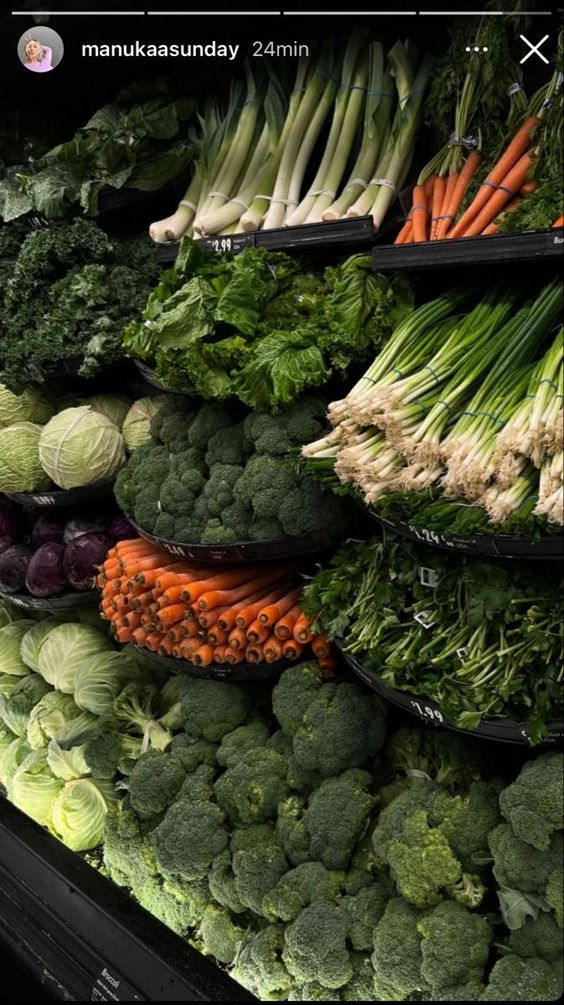
Acne foods such as broccoli, spinach, bok choy, kale and cabbage are all fantastic foods to reduce hormonal. However, some are difficult to digest and can cause bloating as a result. Make sure you cook vegetables like broccoli before eating if you struggle with this as it’s easier to digest.
If you are constantly bloated and struggle to digest any food, it is likely causing inflammation which will in turn create more acne. I’d recommend seeing a functional medicine doctor (also called a naturopathic doctor), to do some stool or breath testing to diagnose and treat any gut problems such as SIBO (small intestinal bacterial overgrowth).
2. Gut health foods for acne
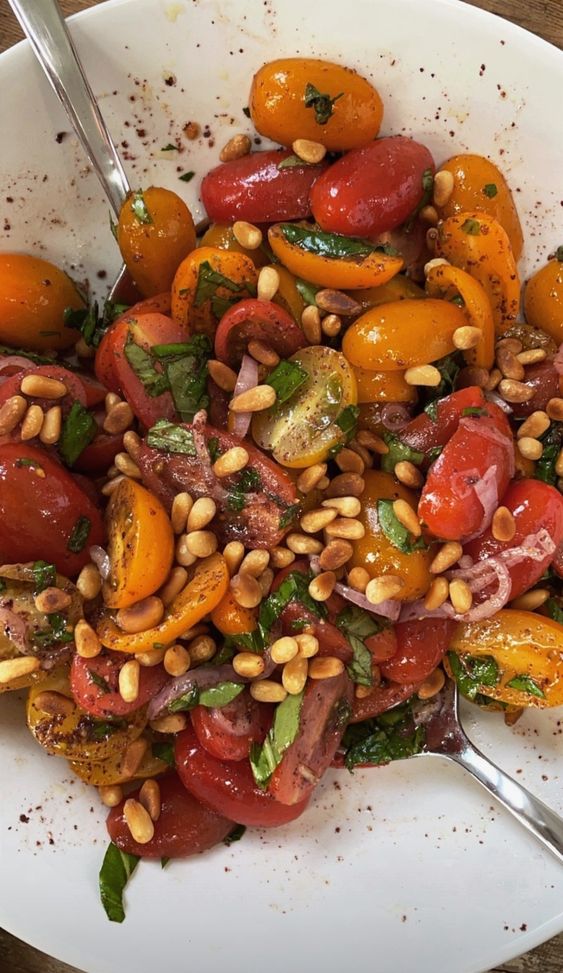
Making fibre a priority and eating fibre with every meal is great for your gut health, because fibre feeds the bacteria in your gut, which helps keep you regular and feeling lean instead of bloated. Fibre is one of the lesser talked about hormonal acne foods, because it indirectly affects the skin. However, not only will it impact your skin positively, it’ll also do many other things like: keeping you regular, healthier hair, nails and more.
I really like to bake asparagus, mushrooms and bell peppers on a weekly basis, as a side to my protein, but other fibrous foods to include to reduce acne are:
- Broccoli
- Spinach
- Carrots raw or cooked
- Oats
- Aubergine
- Rocket
- Apples
- Bananas
- Sweet potatoes
3. Whole grains
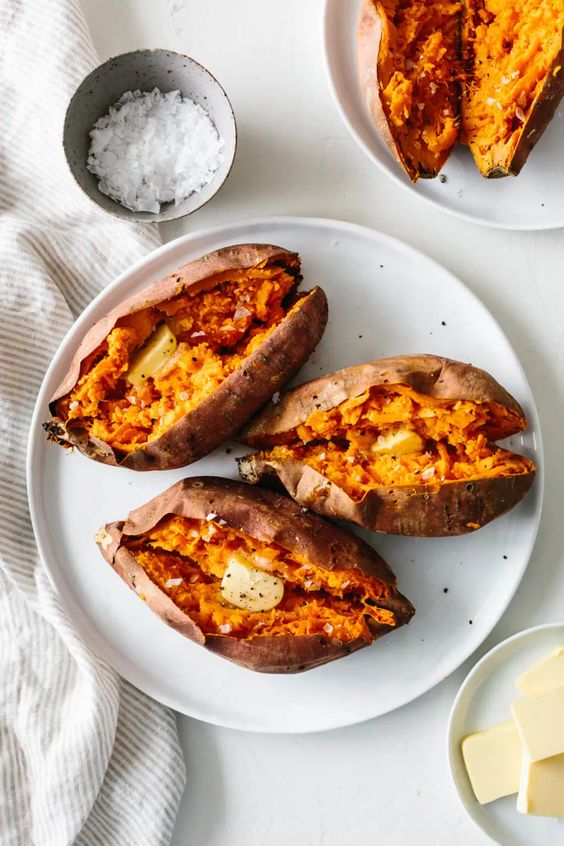
Choosing whole grains instead of refined grains, such as brown or sourdough bread over white, and brown rice over white rice, can be helpful. Since these are not stripped of their fibre, they are slower to digest and therefore do not cause such a big insulin spike in the body. Foods that cause large insulin spikes have been shown to correlate with causing more acne.
4. Antioxidant foods
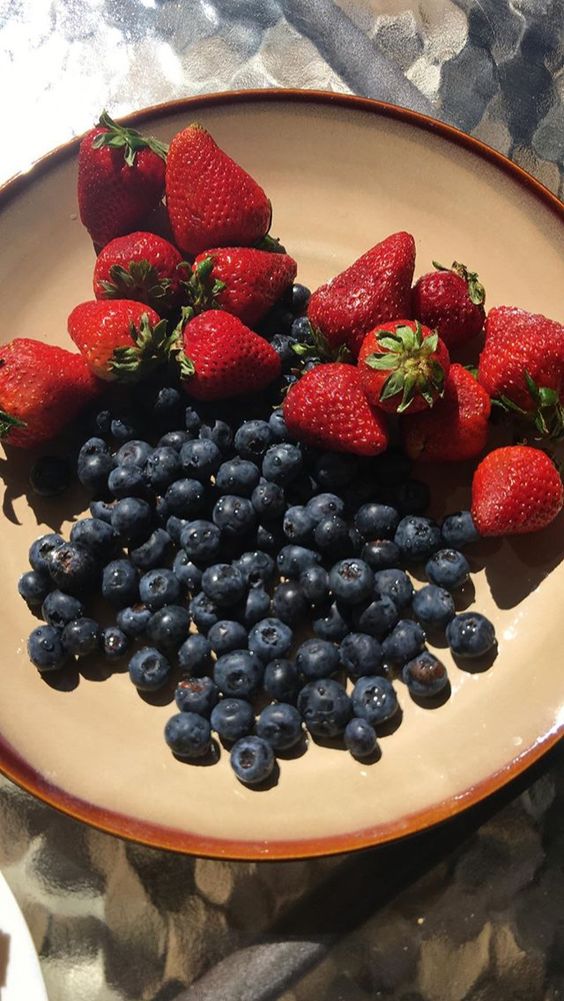
Such as berries, including blueberries, raspberries and nuts. I find it easy to keep a packet of brazil nuts in my bag or in a cupboard, and simply have two brazil nuts per day because they pack so much nutrients and antioxidants. Make sure not to have more than two or three each day, however, to avoid going over the daily recommended intake of selenium.
With berries, I like to buy a few packs at the start of the week and sprinkle them over porridge, or eat them with some dark chocolate as a dessert.
5. Lean protein meats and fish
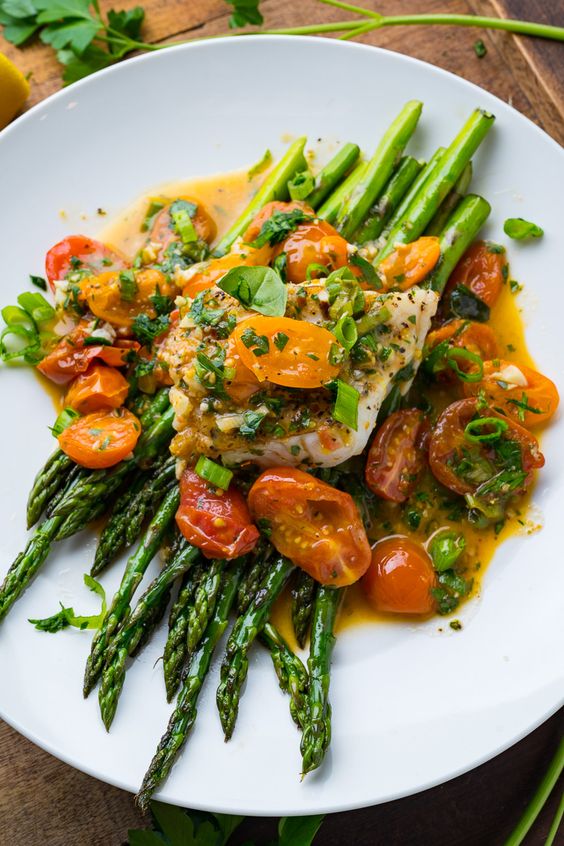
Try to include a few servings of a mix of salmon, cod, turkey or chicken on a weekly basis. Eating protein with every meal is a great way to hit your daily protein goal, and will help keep your blood sugar levelled out.
The protein also contains things like collagen and selenium, which contribute to strong and healthy skin, hair and nails. This is why a vegan diet lacking in protein can often cause brittle or weak hair and nails.
6. Fermented foods
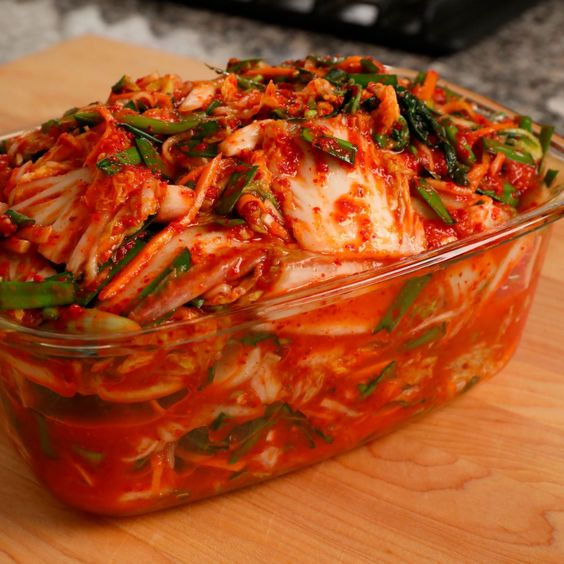
Fermented foods for acne are trending at the moment and I personally love eating – though they’re not for everyone! You can buy jars of kimchi or sauerkraut most easily from supermarkets and health food shops.
Here are a few reasons why fermented foods can help acne:
- Fermented foods ‘feed’ gut bacteria
- The gut is strongly linked to the skin (it’s called the Gut Skin Axis)
- When our gut is healthy, we are much more likely to have glowing skin and less breakouts
- An unhealthy gut is one without enough bacteria, or an imbalance of the right bacteria
- Therefore if we don’t eat foods that nourish our gut bacteria, we may be seeing more breakouts
Some find that they can cause bloating, and this can sometimes be a sign of gut dysbiosis, which is an imbalance of the gut microbiome. What’s tricky is that when you have dysbiosis, you might find that even the best acne foods cause you bloating, inflammation and acne. If this is the case, I do recommend seeing a naturopathic doctor or gut specialist.
7. Dark chocolate
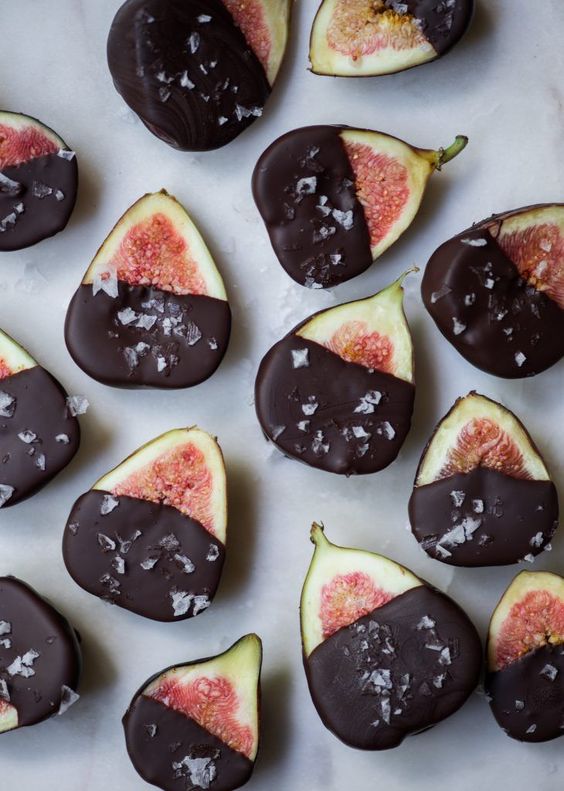
Dark chocolate for acne is a perfect dessert for acne prone skin. It’s very different than milk or white chocolate, which has far more sugar and far less nutrients. Good quality dark chocolate can be a great source of magnesium which has so many benefits, from helping you sleep deeply, to hormone and skin health.

My favourite dark chocolate EVER is Hu dark chocolate. I highly recommend the hazelnut butter version, it’s like a healthy version of Nutella chocolate and it’s dairy free, sweetener free and has barely any ingredients (a good sign that it is unprocessed and skin friendly).
8. Raw carrots for acne
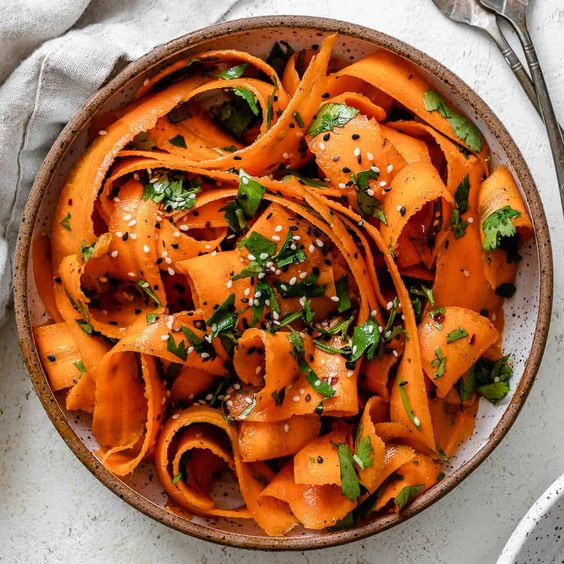
Raw carrots are a great way to support your hormonal acne and hormone health in general. But don’t worry, there are studies that show you only really need one each day to see some nice effects. I personally have gotten into the habit of peeling one raw carrot each day while I prepare dinner. The other benefit is of course fibre, which our gut needs to function well.
This is how raw carrots support hormone health:
- If we do not go to the bathroom regularly, toxins can hang around in our body, including things like estrogen
- There has been evidence to show that raw carrots, when digested, can re-absorb excess estrogen and toxins
- This helps us to flush them away more effectively instead of carry them around for longer
- The extra fibre also can help us have more regular bowel movements, which is great for bloating and digestive health
- Vitamin A is also good for skin health, of which carrots have a lot
9. Apple cider vinegar
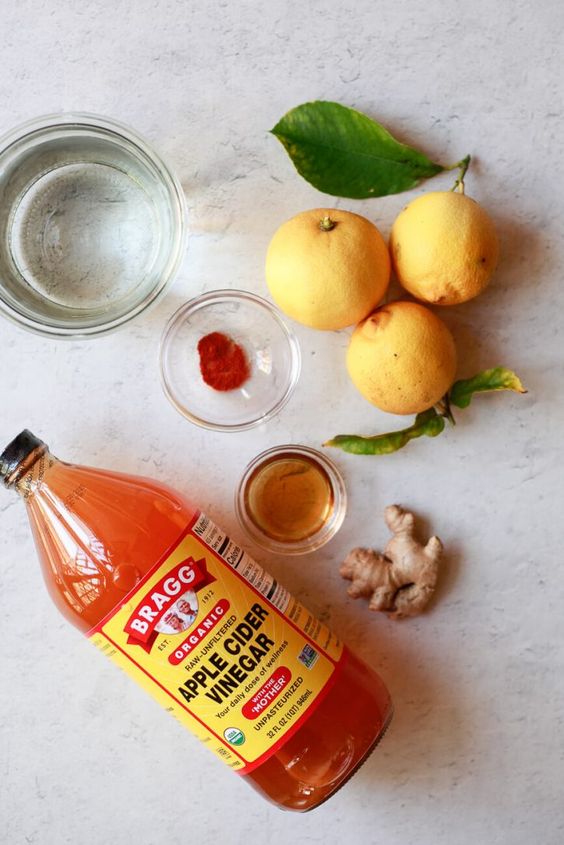
I’m sure you’ve heard of the link between gut and skin health and apple cider vinegar. If there’s one food that’s blown up recently on social media, it’s this.
Here are the ways apple that apple cider vinegar can help with acne:
- Drinking a solution of water and ACV before meals can reduce the insulin spike caused by the meal, and therefore reduce inflammation and breakouts
- ACV is known to help stimulate digestion, if you’re prone to bloating or have low stomach acid
I do not recommend using ACV as a toner or in place of skincare, I only recommend ingesting it to help your skin and gut indirectly.
10. Healthy fats such as avocado and olive oil
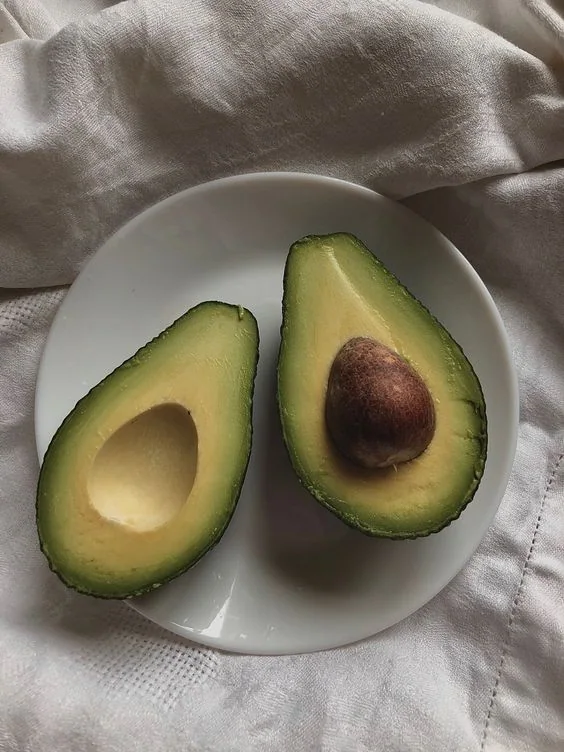
Years ago we’d avoid healthy fats such as avocado, olive oil and nuts due to their high calorie count. Now we know that we need a good portion of fats in order for our hormones to be in top health, and that fats are one of the best hormonal acne foods around.
What’s even better is that fat takes a while to break down in the stomach, which in turn slows down digestion and reduces the insulin spike of the rest of our meal if we eat the fat and fibre first.
Here are some foods with healthy fats to balance hormones:
- Avocado
- Nuts
- Grass fed beef
- Eggs
- Fatty fish like salmon and cod
- Olive oil
- Tallow
Tips for the perfect hormonal acne diet
Sometimes it’s overwhelming to see a long list of foods that you don’t regularly eat if you want to improve your acne, but don’t be alarmed! You don’t have to eat every single one of these foods all the time. Instead, I’ve made some simple rules to stick to.
These are my tips to improve hormonal acne with food:
- When snacking, try to snack on either high protein or fibre foods instead of carb-only foods like crisps or bread. These will cause an insulin spike that may trigger inflammation and acne.
- When eating a main meal, try to include fibre and protein with every meal.
- It’s perfectly okay to eat carbs with every main meal, but try to eat the fibre, fat and protein before you eat the carbs. This will reduce the insulin spike.
- Consider eating one raw carrot each day. I make this a habit by eating it while I prepare dinner and it’s now a routine.
- When you can, swap milk chocolate for dark chocolate.
- If you struggle to sit down and eat fibre on its own, you can consider throwing it into a smoothie. I have a protein smoothie everyday with banana and spinach – you can’t taste the spinach at all!
- Focus on gut health, because one of the root causes of acne is poor gut health. I myself have experienced good gut and skin health, which deteriorated after a few rounds of antibiotics that caused an imbalance in my gut and therefore my skin. You can focus on gut health by simply trying to eat a variety of fruit, veg, nuts, seeds and spices each week. Why not try a vegetable you’ve never tried?
Should you buy organic fruit and veg to improve acne?
If you’re like me and have been wondering whether or not it really makes a difference to buy organic fruit, veg and meat for your acne, don’t worry – I’ve done the digging for us.
I’m a big fan of the Zoe Science and Nutrition podcast, and I recently learned a few things about organic produce.
The short answer is that simply buying organic produce is unlikely to make a drastic difference in your skin health, realistically. However if you can afford to, you might want to select a few items to buy organically, because not all organic produce is equal.
Which foods make sense to buy organically?
- Oats – a lot of non organic oats are sprayed heavily with glyphosates which, when eaten in high quantities (AKA daily porridge!), can disrupt the gut microbiome and cause issues.
- Berries – berries are typically eaten with the skin on, meaning any pesticides absorbed by the thin skin, even if rinsed, might be going straight into your digestive system.
- Other fruits where you eat the skin, even if rinsed, are ideal to buy organically.
On the opposite hand, fruits with thick skins that you don’t eat, such as mangos, are fine to buy non organically.
Herbal teas for acne
There is a lot of evidence to support the use of herbal teas for controlling and reducing hormonal acne, as well as simply promoting glowy skin.
Spearmint tea for hormonal acne
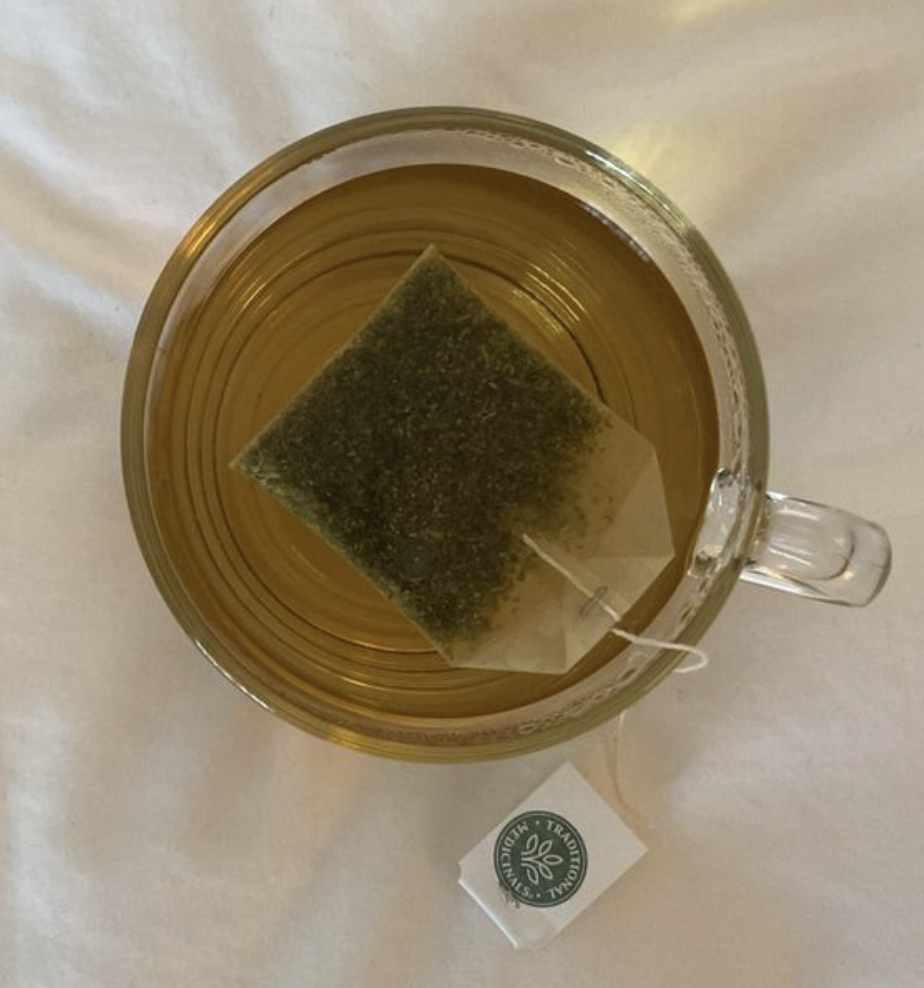
Spearmint tea is one of the most commonly recommended teas for hormonal acne specifically, because it has an anti-androgenic effect. Androgens are the sex hormones largely responsible for PCOS and hormonal acne breakouts, so especially for PCOS cysters spearmint tea is recommended. It’s important not to buy pepperment tea instead as it won’t have the same effect.
My current favourite spearmint tea is very affordable and from Amazon. Don’t worry if you don’t like liquorice – it tastes nothing like it!
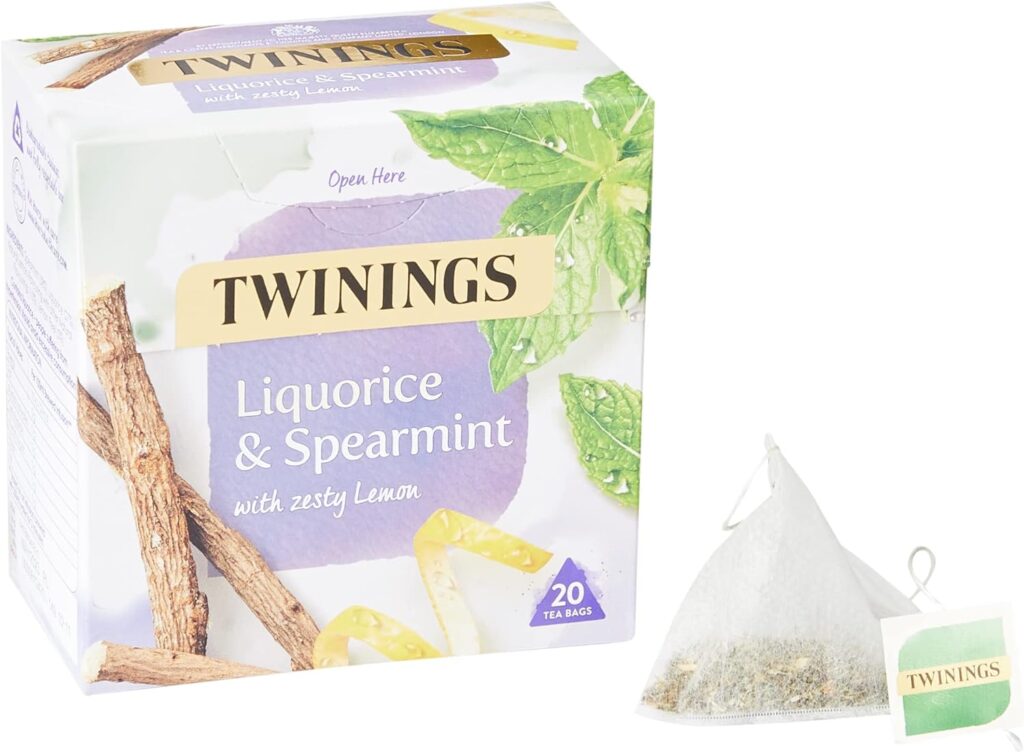
Dandelion tea to support the liver
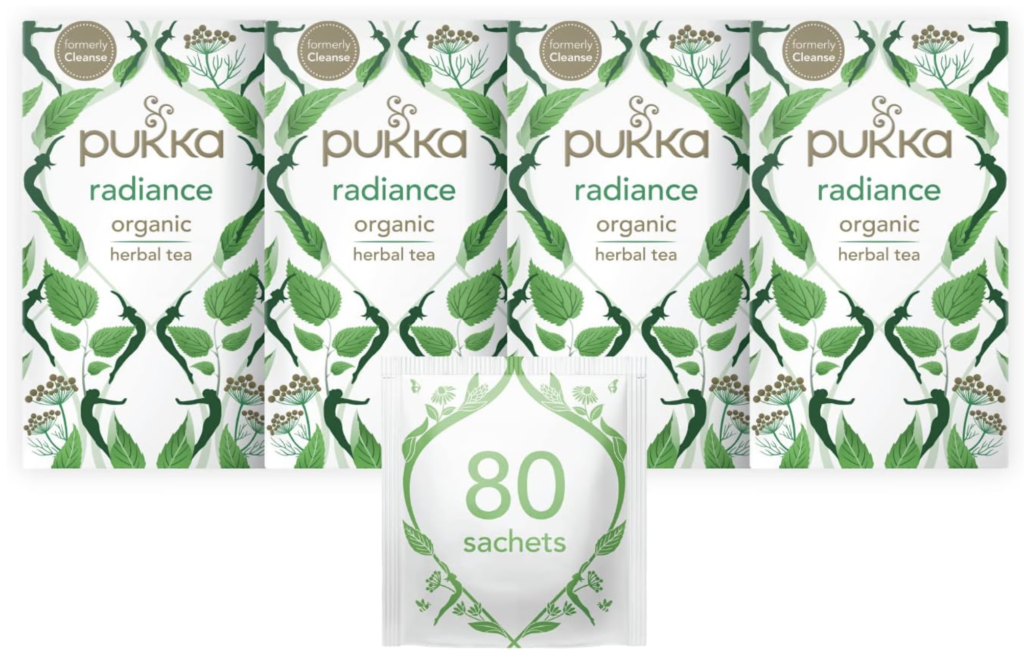
Dandelion tea is another great tea to drink regularly for the skin. Dandelion herbs and supplements are well known to support the liver’s natural detoxification, which is really important for healthy skin. You can often find dandelion in a blend of other herbs, marketed as a ‘detox’ or ‘radiance’ tea, which are all great options.
I personally don’t feel you can do too much harm with a simple tea, so I recommend trying a few out to see which ones you like best.
Supplements for acne
When it comes to supplements for hormonal acne, I want to be really clear that my advice is not medical advice, and I’m not a doctor. In my experience, supplements can do a lot more harm than teas, so I do not recommend trying out lots of new ones at once. Imagine if you try out three at a time, start breaking out, and don’t know which one caused it!
I actually caused myself a severe acne breakout by supplementing with B12, that I wouldn’t wish on anyone! For that reason, always check with your doctor before taking any of them. Some supplements can even cause other medication to stop working, so it can be very detrimental.
With that in mind, here are some of the best supplements for hormonal acne:
- DIM (diindolylmethane) has anti androgenic effects, similar to spearmint tea.
- Zinc, especially zinc picolinate. Studies have shown that often acne patients are zinc deficient, and zinc plays a big role in skin health. I actually take this supplement once per day and have had great results with my skin.
Conclusion
All in all, if there’s anything I’ve learned about skin over the years is that it is a multi-factorial beast, meaning so many things contribute to its appearance. In all honesty, sometimes it’s frustrating how much so – I wish it were simpler! Hormonal acne especially can be stubborn, but I truly feel the link between diet, gut and skin is not yet as greatly acknowledged as it should be.
If you’re dealing with acne and your diet is filled with dairy, sugar and processed foods (foods that contain main ingredients rather than whole foods) I would urge you to try to establish some weekly hormonal acne foods and meals that contain a colourful variety of fibrous vegetables, lean proteins and healthy fats. Try it for 3-6 months and see if there’s any improvement, I think you’ll be pleasantly surprised.